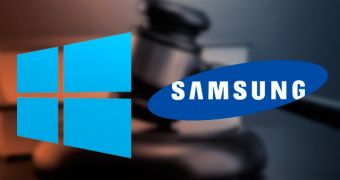Microsoft worked together with OEMs across the world to ensure a smooth transition from older versions of Windows to the new Windows 10, but it appears that the experience some are getting after making the switch is disappointing to say the least.
Samsung customers have been hit with compatibility issues, most of which are caused by drivers that don’t fully support Windows 10. The Broadcom wireless card isn’t working correctly for some Samsung device owners, and it turns out that the company itself is well aware of that.
Samsung support tells users that it’s better to refuse the upgrade to Windows 10 because of these incompatibility issues, explaining that for the moment, there’s no deadline as to when drivers could fully support the new operating system.
“Keep the current Windows version”
An email seen by The Register and allegedly sent by Samsung to a customer explains that it’s better “to keep the current Windows version” because of faulty drivers. The email also says that once drivers are ready, the Windows 10 upgrade can be safely performed, although that may be a problem given the fact that Microsoft will end the free upgrade offer in July.
“Honestly speaking, we don't suggest installation of Windows 10 to any Samsung laptop or PC and we are still coordinating with Microsoft regarding to this matter," Samsung's UK support was quoted as saying.
“The Drivers that we have on our website are not yet compatible to the latest version of Windows. What we usually recommend is to keep the current Windows version and we'll update you once the Windows 10 have no more issues on any Samsung laptops and computers or even monitors.”
Microsoft hasn’t yet offered a statement on this, but we’re pretty sure the software giant isn’t surprised to hear about Samsung’s recommendations.
Back in 2012, Samsung was one of the companies that criticized Windows RT, the tablet-oriented operating system that was installed on the Surface RT. At that time, however, Samsung did it publicly, whereas now it adopts a more careful approach and only provides recommendations to users to avoid the upgrade to Windows 10 in private emails.

 14 DAY TRIAL //
14 DAY TRIAL //